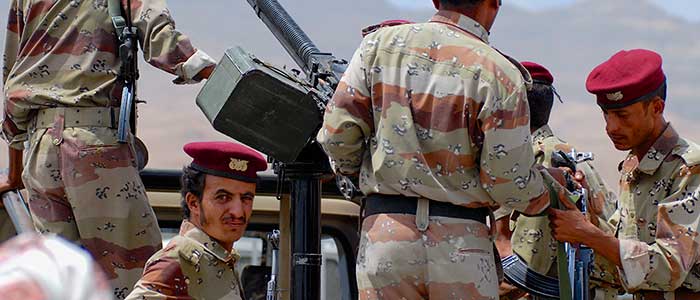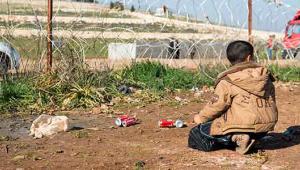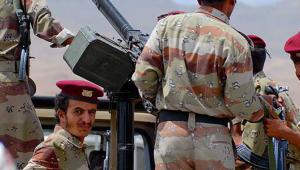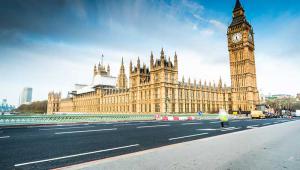Web_Yemen_iStock_000057482592_Large.jpg

Yemeni military soldiers
Since May last year, a Saudi Arabian bombing campaign has caused the deaths of thousands of civilians, destroyed health infrastructure and contributed to one of the world’s worst humanitarian catastrophes.
But the UK government maintains that Saudi Arabia has not breached IHL.
In a report published yesterday, MPs on the international development select committee said this is “deeply disappointing” and “appears to have contributed to the ‘anything goes’ attitude by both sides to this conflict”.
Both the Saudi-led coalition and their opposition, the Houthi rebels and forces loyal to deposed president Ali Abdullah Saleh, are accused of violating IHL, but the former is considered responsible for the vast majority of civilian deaths.
The select committee’s inquiry found strong, credible and growing evidence that IHL is being breached.
“Schools, health and vital water and nutrition supplies are at risk, while the civilian population bears the brunt of the fighting,” the committee said.
“Yemen faces one of the worst humanitarian crises in the world, with 82% of the population in need of assistance.”
The United Nations, the Red Cross and numerous NGOs have accused all parties in the conflict of indiscriminately and even deliberate targeting of civilians and non-military institutions, as well as using banned forms of munitions such as cluster bombs.
A UN report, published in January, identified “widespread and systematic attacks” on civilian targets including refugee camps, schools and hospitals, altogether documenting 119 breaches in IHL by the Saudi coalition.
The MPs noted that the UK’s highly profitable arms sales to Saudi Arabia brought in £2.95bn in the first nine months of last year alone.
But ministers have refused to concede that there is a case for revoking arms export licences to Saudi Arabia. Foreign secretary Phillip Hammond has said there is “no evidence” of breaches in IHL.
As a result of international pressure, an inquiry was set up in January to investigate incidents where it is alleged IHL has been breached. However this is being conducted by the Saudis themselves.
The international development committee called yesterday for an independent investigation, stating it remains “unconvinced” the Saudis are the best placed to investigate accusations against themselves.
Hammond asserts that Saudi Arabia has engaged in “constructive dialogue” with the UK and has procedures in place to investigate and prevent breaches of IHL.
The committee also recommended that a recent inquiry into the UK’s sale of arms to Saudi Arabia, opened by the Committees on Arms Exports Controls, considers the case for suspending all British arms sales to Saudi Arabia until there is evidence that there is “no clear risk” they may be used in violations of IHL.
Responding to the report, Sherine El Taraboulsi, a research fellow and expert in Yemen’s civil war from the London’s Overseas Development Institute, said the UK must halt its arms sales and join the international effort to hold all parties in Yemen to account.
“The people of Yemen are suffering staggering losses – both in human life and to the social fabric of their communities,” she said.
The conflict has also severely hampered the delivery of aid in the country. The UK is one of Yemen’s biggest donors, contributing £85m in aid.
While the international development committee commended this effort on the part of the UK’s Department for International Development, it urged the government to consider the contradiction in supplying such substantial support to both the relief effort and the forces driving the devastation.
Committee chair Stephen Twigg said: “The UK government should look at the evidence presented in our report and carefully consider the paradox at play here.”













